- Home
- Douglas Clegg
The Queen of Wolves Page 2
The Queen of Wolves Read online
Page 2
“Get out! Get out and hunt, before I...” As I determined what his punishment might be, he crawled to the end of the ledge to be farther from me.
He turned around, pointing an accusing finger at me. “I know why she is here! I know what you will do!”
“Quiet,” I said, almost softly. I stepped toward him, crouching to be closer to his level.
“I want it,” he said, glancing about as if afraid someone might hear him.
“I should never have shown it to you.”
“It should be for me,” he said. “I could have it. Not her. Not a mortal like her.”
“It would destroy you,” I said. I reached my hand out to him. He looked at me as if confused by my sudden gentleness. He could be both a tiger and a lamb. When he took my hand, I pulled him closer to me. “You cause me so much pain.”
“Sons do that, I guess,” he said.
“Did you intend to kill her?”
“No,” he whispered. “I swear. She promised me blood. Each dawn.”
“Dawn?” I asked.
“Before the sun, but after morning’s twilight. When the sun had not quite reached the rift. After you had closed your eyes. She bribed me with her scent. I could not...I could not resist.”
“You have drunk from her before?”
“Only a taste,” he said, pitifully. “Before this. Only a drop or two. Her taste is worth many vessels of ordinary blood.”
“Is this the truth?”
I felt him shiver as I held his throat in my hands.
He nodded. “I would not lie. Not to you.”
“How many days has she had her freedom?”
His eyes narrowed, and he counted it out on his fingers. “Since her twelfth night here.”
“Go,” I said, feeling as if I had lost my bearings. Why had she done this? Why had she not obeyed? Why had Daniel betrayed me in this way? I could trust no one, and did not want to risk Natalia’s life to these flying jackals that surrounded me. “Do not touch her again. Do not drink from her, nor make bargains with her, fool. Do not ask about those things you know are not meant for you, Daniel. I will not forgive you if this happens again.”
I watched as he flew off the ledge, upward toward the great rift in the mountain above, toward the open sky.
I returned to find Natalia clutching her neck. I took her into my arms, and whispered, “Don’t be afraid.” I touched the wound at her throat, sensing the warmth. “The healing has begun. You will need rest and food, I think, to recover your strength.”
I managed to close the wound, though two small pinprick marks were left to remind me of Daniel’s betrayal.
She held out her fist and opened it to reveal the wolf key in her palm.
“A thief,” I said. “I allow you access to the treasures here. I feed you well. My tribe would rather cut your throat than allow you these freedoms. I punish them for such thoughts. I guard against their worst intentions toward you. Is this how you repay my generosity?”
Natalia looked up at me, fear in her eyes. “I saw you put it in the urn once. Sometimes you keep it at your waist or at your neck. I was...curious. When I examined it more closely, I noticed a missing part to it, as if it were a puzzle. And this.” She drew the wolf tooth off the key, then set it back, nestling it along the carved ridge of the base of the key. “You had been waiting for me to bring this tooth. It had been put away for...”
“For centuries.”
She held the key to her eyes as if trying to read the tiny glyphs scrawled upon it.
“Let she who finds, know,” I said. “It was engraved in the eighteenth century. A master craftsman in Florence who had a special magnifying lens that allowed him to write such tiny words.”
“Am I the ‘she’?”
“I can’t answer that for you.”
“What box does this open?”
“If I showed you what this key fit, you would not understand. Not yet,” I said.
“I’m sorry for taking it,” she said. She passed it back to me.
“As you took a key years ago and found a crushed dried flower and a wolf’s tooth among your mother’s possessions,” I said. I could not help smiling, thinking of all the things that had been passed down through the generations in her bloodline, secrets kept, promises held, oaths sworn. “Theft. It is what began my tribe of vampyres, for the priests of Myrryd stole immortality and more from Medhya. She in turn had stolen these secrets from the Great Serpent.”
“All power begins with a theft,” she said. “Prometheus stole fire from Heaven to bring to mankind.”
“By legend, he is punished eternally for it,” I said. “As we are, here, cursed by our Dark Mother to drink blood and never to cross the threshold of Death. Power itself is cursed. We must exist alongside such punishment.”
4
“You are not safe here anymore,” I said as we walked down the road that led to the gates of the city. “There is a place even these vampyres will not go. Within the city. A bedchamber fit for a mortal queen, untouched for hundreds of years.”
“It must be very dusty,” Natalia said, and I smiled at this show of good humor.
“We have protectors who take care of it,” I said.
“The human cattle,” she said.
“Protectors. They have their benefactors among our tribe.”
“And lovers,” she said. “So does the key fit the lock of this room?”
“No, not this bedchamber. But you will have your own key to it, and lock it from within so that no one may enter unless you wish it.”
The torches had been lit along the fields of bones—and among these dead, the flower of the Flesh of Medhya twisted and turned, grown over the years into a bramble of thick vine and blossom. The statues of the old gods seemed to shine gold and onyx in the wavering fires. The great statues of the bulls of the Mithrades had been brought long ago to the walls of the city, and stood as enormous guardians of the Dal-Bas Gate, the main entry to the Temple of Lemesharra.
Alkemara, abandoned after dusk, seemed new and fresh. I enjoyed the city like this, emptied.
I led her along the streets, through a vaulted doorway, beyond which was a courtyard with a marble floor. Slender columns rose to a terrace, and we climbed the stairs. Several apartments led from the terrace to an interior house of sorts, which was empty of feature and furnishing.
At the end of a hall, there was the silver door with designs of the second kingdom of Alkemara upon it. Beside it, two middle-aged women slept upon cushioned benches. “Inside, there are no windows, yet air enters through a system of slender pipes. The door is silver so that no vampyre may breach it.”
I called out to one of the women by name, and she awoke. When she saw me, she reached into the pockets of her shirt and brought me the key. I passed it to Natalia. “You must open it. None but you and these protectors may do so.”
I followed her to the door, feeling that vibrating pain of the silver aura as I drew close to the door. She unlocked it and pushed it open.
I heard her gasp as she glanced inside.
“Go on,” I said. “It’s for you. This way, you may come and go as you please. You won’t have to bribe a guard with your blood.”
5
Within, a great bedchamber meant for a noblewoman. It had exquisitely carved posts along the bed, and its light source was several candles in sconces. She went in and lit each one. Though it was kept clean and well attended, no one had slept in it for nearly a thousand years.
A toilet of an old kind as well as a rectangular bath—the size of a small swimming pool—was cut into the marble floor, and steam rose from its waters.
“You may bathe here, if you like. Rest. I will guard you tonight. I can entrust your care to no one but myself. My tribe is not good with matters of temptation.”
“It was my fault.” She looked about the sumptuous room, avoiding my gaze. “I wanted to explore. I couldn’t rest. I told him he could drink from me if I would be allowed the freedom to wander.”
“That is what you wish?”
“Yes. When you sleep, I...want to see Alkemara in the daylight. I want to go about without vampyres watching me. I want to see more than you show me each night. You know I won’t try to run from you. Look at me. You know this is the greatest treasure I could find. Right here. This is more than I ever hoped for in all my studies. All my dreams.”
“You have been out during the day without my knowledge?”
She shot me a defiant glance. “You do not own me. You do not dictate where I go. What I do.”
“It’s a dangerous game you’ve been playing.”
“No vampyre threatens me during the day. Do you think I will destroy you and your kind?”
“Perhaps,” I said. “You have reason to do so. It is easy enough for mortals to send us to our Extinguishing when the sun is high above us. We are vulnerable during those hours. During times of plagues and famine, we were hunted like wolves—scapegoats for every crime of the earth. We were devils. There are hunters who seek our treasures.”
“You have given them freely to me,” Natalia said. “I do not wish the end of your tribe. But...Aleric, there is so much... It might take me a lifetime to decipher the scrolls here, to see each frieze and painting, and to pore over the works. As long as I am here, I want to explore all of it.”
“You have a great hunger for this.”
“I’ve spent my life dreaming of finding a place like Alkemara,” she said, and something in her voice reminded me of another voice I had heard centuries before. “I am here. Now. I don’t know for how long. I know people will search for me—at some point. I know that some night, you may...you may take my life.”
Never, I thought. I did not answer her, for to do so might reveal what I sought to offer when I had told her of my past.
“The wars,” I said. “They grow closer with each passing night. I can’t risk you to any of this.”
“Will you give me my freedom here?”
“But the dangers,” I said. “I trusted Daniel, though I should not have.”
“He adores you,” she said. “And he’s terrified of you.”
“You can say this...after he...”
“He wouldn’t kill me. He’s afraid of me, as much as he wants to destroy me,” she said. “You are not so easy to decipher. I cannot read this much in you. In the papers and scrolls of your first century, I have begun learning so much. I want more. I want the lock for the key made of the bone of a wolf. Is it a box, or a room?”
“It’s in a room. Forbidden to all.”
“All but you.”
“Are you my Bluebeard?” she asked. “If I find a way into that forbidden room, will I find all your dead wives?”
I could not lighten my demeanor when it came to this chamber. “You must not even search for it,” I warned her. “I will take you to it when I know you will understand what is there. Come, my friends have laid out a feast for you.”
“After supper? Will I see this forbidden place?” she asked.
6
That evening, we sat in the Great Hall of the Temple of Lemesharra within the buried city of Alkemara. She was in a sullen mood, and I, too, had grown moody. She wanted too much too fast. She needed to know all that had happened, and yet there was much of the journey of my first century to tell.
All around us were the gently curved ceilings where—in centuries since my first discovery of this city—I had brought the young apprentices who had worked with Michelangelo himself to create a similar Heaven and Hell upon the walls of Alkemara.
Above us, the paintings of angels and demons, the creatures of the Veil and of Myrryd—including the Lamiades, the Akhnetur, and the Myrrydanai themselves—told a story of the visible and invisible world around us. The lizardlike Lamiades seemed to chase each other’s tails; while the Akhnetur—those flying scorpions with the faces of maidens—spun their webs and swarmed along a white tree that produced golden fruit at the center of a garden deep with the purple Veil flower. Other creatures, from harpies to gryphons, guarded the corners of the ceilings—each rendered so clearly as to seem drawn from life. A portrait of the vampyre Pythia watched us from the far end of the room.
Closer to our table, Enora’s portrait adorned the smooth wall. She glared at us, but the painting did not capture her ferocity.
Surrounding her in the portrait were her Chymer wolf-women, some vaguely in the middle of a transformation from wolf to human, others complete. All of them crouched at Enora’s feet.
I glanced up at the ceiling—to the magnificent falcons of my mortal life—and the words returned to me from many hundreds of years previous: “The falcons hunt the skies.”
As I spoke it, Natalia also glanced up from where she sat at the table. “You were a falconer as a boy. You flew as a falcon as a vampyre.”
“I was called Falconer, and did not understand for many years why the name remained with me,” I said. “Those birds...from my childhood...from the teachings my grandfather gave to me of their language and their nature. I did not know that my own nature was of a flying predator. The falcons became like spirit guides to me, although it took me until the first battle against Taranis-Hir to understand this.”
Upon our long table, laden with the scrolls, the maps, the debris of the past, all sprawled about amidst the generous repast my companions had brought for our mortal guest: grapes, dates, flatbread, spiced goat meat stewed in steamy tarjines, and chicken roasted to a tender brown-yellow. A flagon of red wine, a heavy bottle of white; a pitcher of warm jasmine tea; lentil samosas; and various other tidbits and tastes that they had gathered from flights to the cities each night.
The smell of sweet spice was in the air. The room, filled with a thousand candles, shimmered with the light, almost giving movement to the portraits and images on the walls. Between the flickering lights, the shadows.
“You haven’t eaten much this evening,” I said. I pushed away a scroll Natalia had unraveled and offered her some bread dipped in warm, yellow hummus. “Try something.”
“I’ll grow fat here,” she said, but took the bread from my fingers. Tasting it, she made a gentle sound of satisfaction. “This is heaven for me.”
“Heaven? Many mortals would call it the opposite.”
“This room, this temple. The entire city,” she said. She reached for a goblet, and I poured wine from the flagon into it. She took a sip. “All these scrolls. All this lost...lost history. Lost knowledge.”
“The world seems no worse without it,” I said.
“No better, you mean.” She glanced over at the painting of Enora. Enora, in her wolf-pelt robes, her hair dyed red for battle. Beneath the robe, a long gown of pure white. In her left hand, the Nahhashim staff; in her right, what looked like a great claw thrust on the end of a half-spear. “She was the mother of your children.”
“When she was Alienora,” I said, not bothering to look over at the painting. “The Myrrydanai took her over. She invited them into her. She sought the lowest form of magick—power over others. The destruction of others. Anyone can destroy. Even a child may wipe out a colony of ants with one well-placed footstep. She was nothing but fury...at the end.”
I closed my eyes for a moment, trying not to remember the last time I saw Enora, as she stood along the balcony of the tower of White-Horse. I did not yet wish to recall her words, or remember what her final act had been.
I opened my eyes and directed her attention to the far end of the table—the portrait of the Pythoness. “Pythia—a Pythoness of an ancient age. Daughter of Merod, child of Alkemara. She enjoyed power as well. A trickster, a deceiver, a liar, a betrayer. Despite all these qualities, she rescued me and led me from certain Extinguishing in Aztlanteum, risking her own life—for she had become mortal then.”
“The mask that leached immortality from her, yes. The Gorgon Mask.”
“Medhya’s Mask, the mask of Datbathani—the mask has had many names, for it has passed through many hands until it reached Pythia herself. Some
legends say that the mask was stolen from the god of the sun and given to a tribe of men that slaughtered all other tribes in those years when men lived beneath the ground. Others, that the mask was stolen from the temple walls of a conquered god. The mask brought immortality to its first wearer, who then became a god. It has since leeched immortality or mortality from whoever wore it. Nezahual called it the mask of the Ketsali, and claimed ownership. I think he loved the mask more than he loved Pythia.”
“You loved her.”
I nodded. “Perhaps this love was forced upon me when she brought me into vampyrism. She was avaricious. Lustful. Lazy. Sneaky. Bloodthirsty. How do you love a betrayer? A seducer? A creature who brought her own father to misery? She could not see gold, but she had to steal it. She could not find a beautiful youth, but she must seduce him. That love is like a firestorm. In the centuries that have passed, all love seems...”
I could not finish the thought. I felt the old pain at my heart. I had three loves in my early life, and I could not think of any of them without experiencing regret and sorrow. “Yes. I loved her, and others.”
“I think most people would not believe a vampyre capable of love,” Natalia said as she reached to the middle of the table to pluck a handful of grapes from a wooden plate.
“Some vampyres cannot love,” I said. “There is a love between us, even so. The stream is a kind of love—it flows as if telepathically between all vampyres. We feel the sorrows of those we cannot even see. We understand those who have committed atrocity. We forgive the vampyre his flaws, because to feel what the other feels is to understand completely. That is a kind of love. But I suspect love doesn’t interest you tonight. Or does it?”
“What about your children? You had two with Enora.”
“Lyan, my daughter. Taran, my son,” I said. I did not like to think of them anymore. It had taken me centuries to want to recall their young faces.
“Surely you had not given up on them? Even their mother—I can’t believe you had given up on her.”

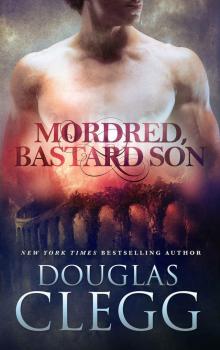 Mordred, Bastard Son
Mordred, Bastard Son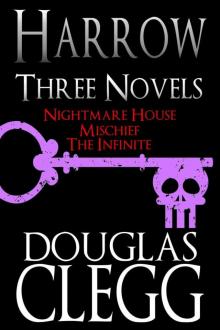 Harrow: Three Novels (Nightmare House, Mischief, The Infinite)
Harrow: Three Novels (Nightmare House, Mischief, The Infinite)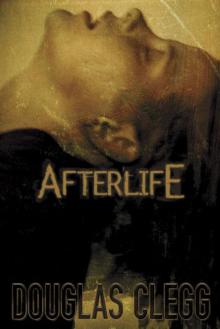 Afterlife
Afterlife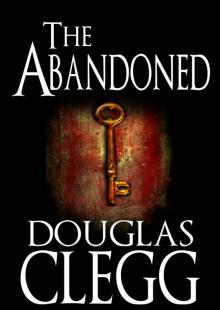 The Abandoned - A Horror Novel (Thriller, Supernatural), #4 of Harrow (The Harrow Haunting Series)
The Abandoned - A Horror Novel (Thriller, Supernatural), #4 of Harrow (The Harrow Haunting Series)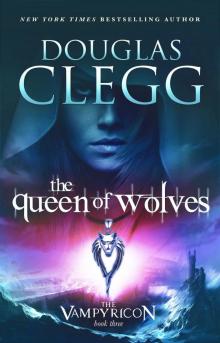 The Queen of Wolves
The Queen of Wolves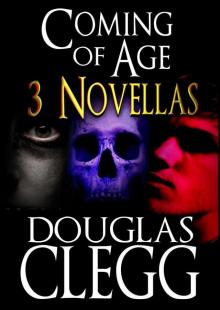 Coming of Age: Three Novellas (Dark Suspense, Gothic Thriller, Supernatural Horror)
Coming of Age: Three Novellas (Dark Suspense, Gothic Thriller, Supernatural Horror)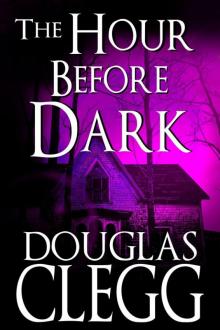 The Hour Before Dark
The Hour Before Dark Isis
Isis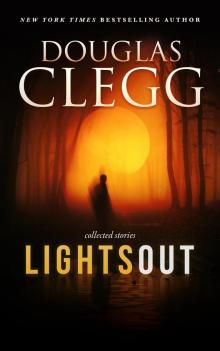 Lights Out
Lights Out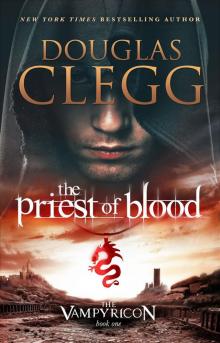 The Priest of Blood
The Priest of Blood Criminally Insane: The Series (Bad Karma, Red Angel, Night Cage Omnibus) (The Criminally Insane Series)
Criminally Insane: The Series (Bad Karma, Red Angel, Night Cage Omnibus) (The Criminally Insane Series) Halloween Candy
Halloween Candy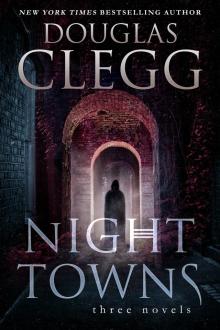 Nights Towns: Three Novels, a Box Set
Nights Towns: Three Novels, a Box Set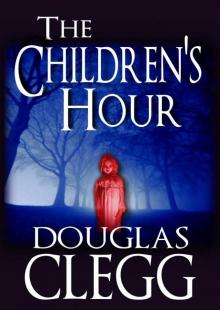 The Children's Hour - A Novel of Horror (Vampires, Supernatural Thriller)
The Children's Hour - A Novel of Horror (Vampires, Supernatural Thriller)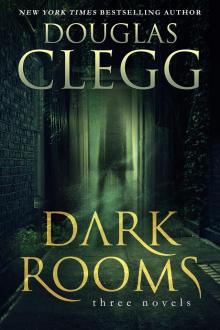 Dark Rooms: Three Novels
Dark Rooms: Three Novels![[Criminally Insane 01.0] Bad Karma Read online](http://i1.bookreadfree.com/i2/04/10/criminally_insane_01_0_bad_karma_preview.jpg) [Criminally Insane 01.0] Bad Karma
[Criminally Insane 01.0] Bad Karma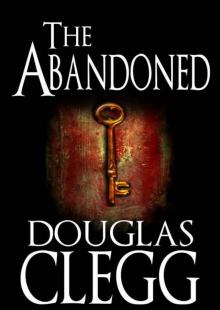 The Abandoned - A Horror Novel (Horror, Thriller, Supernatural) (The Harrow Haunting Series)
The Abandoned - A Horror Novel (Horror, Thriller, Supernatural) (The Harrow Haunting Series) Halloween Chillers: A Box Set of Three Books of Horror & Suspense
Halloween Chillers: A Box Set of Three Books of Horror & Suspense